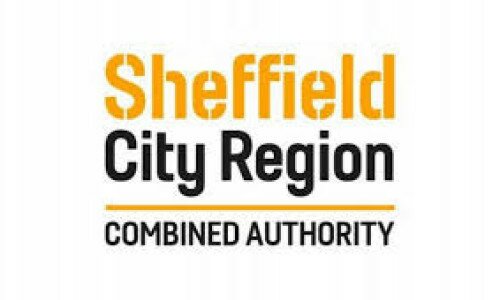
Sheffield signs metro mayor devolution deal, but do the finances really stack up?
Sheffield has become the first of 38 English city regions to agree a devolution deal with the Government, but the financial rewards flowing from Whitehall to south Yorkshire are hardly over-generous, writes Paul Dale.
The Sheffield city region will be able to tap into a Government pot of money worth £30 million a year over 30 years, which amounts to just under £1 billion.
The cash will help to boost manufacturing and innovation and will have to be spread among all members of the Sheffield City Region Combined Authority – Barnsley, Bassetlaw, Bolsover, Chesterfield, Derbyshire Dales, Doncaster, North East Derbyshire, Rotherham and Sheffield.
In return for the devolution deal the councils must agree for the city region to be run by an elected metro mayor who will oversee transport budgets and strategic planning from 2017.
The Mayor will oversee a range of powers devolved from government including responsibility over transport budgets; franchised bus services and strategic planning while the deal also includes additional devolved powers for the area’s combined authority.
The deal will see:
- Transport funding and bus franchising devolved to the elected mayor
- Powers over strategic planning
- Funding and support to boost manufacturing and export activities
- A locally led review of skills provision and funding
The length of time over which the Sheffield agreement will run is bound to raise questions about the proposed West Midlands deal, where an investment fund of £8 billion has been suggested by the region’s seven metropolitan councils.
A draft devolution submission document sent by the West Midlands councils to the Treasury makes no mention of any timescale for the deal. But if the region was also handed a 30-year deal, the investment fund would amount to £266 million a year for the seven councils and several shire district councils expected to join WMCA.
Local councillors in the West Midlands will be picking over the fine details of the Sheffield scheme, particularly Labour members who have long suspected Mr Osborne’s ‘Northern Powerhouse’ promise is based more on hype than sound financial reality.
They will also want to know whether the £8 billion investment fund involves cash for Hs2-related development that would come to Birmingham without devolution.
Chamberlain News has revealed how devolution talks between the West Midlands council leaders and the Treasury are dragging on with little sign of any agreement being reached. The imposition of an elected mayor with powers to raise council tax and business rates may be a sticking point for some councillors.
Prominent Birmingham Labour councillor John Clancy reacted by describing the financial rewards being offered to Sheffield as “peanuts” and added that a similar offer for the West Midlands would not be sufficient to “contemplate wholesale political change” that a mayor would bring.
Cllr Clancy added:
If the West Midlands deal is for the kinds of sums on offer to the Sheffield city region today, it will be a tremendous disappointment and won’t kick-start any kind of regional economic or manufacturing growth.
The multi-billion pound deals which were apparently on offer can’t be some decades-long drip, drip, drip. It can’t amount to a bit of oil for the Midlands Engine, when we were expecting a fill-up of the tank just to get us started.
We should have been told the timescale before we even got into negotiations. This is DevoMin.
Details of the Sheffield deal were being unveiled by Chancellor George Osborne today.
He is expected to describe the deal as the most fundamental shake-up of local government for a generation and will say:
Sheffield is forging ahead in the Northern Powerhouse, which this historic deal proves is taking shape.
The chancellor described the Northern Powerhouse as “a collection of northern cities sufficiently close to each other that combined they can take on the world” when he revealed plans to devolve powers to England’s great cities in June.
Last November he announced that Greater Manchester was to have an elected mayor and next year the region is to become the first English region to get full control of its health spending.
Last month 38 English city regions including the West Midlands submitted devolution bids to Mr Osborne.
Launching the Sheffield deal, Mr Osborne will say:
Manchester is not a one-off – far from it. In becoming the second great northern city to sign up to managing its own affairs with this ambitious agreement, Sheffield City Region is playing a vital part in helping to build the Northern Powerhouse.
Sir Stephen Houghton, current chairman of the SCRCA, will say:
This proposal marks the next step on our devolution journey and will enable local leaders to make bigger and better local decisions over skills, business growth and infrastructure.
Over the coming months we will be speaking to local residents, businesses and partners about what this means for economic growth in their City Region.
James Newman, chairman of the Sheffield City Region Local Enterprise Partnership, will say:
For too long Whitehall has been in control of major decisions affecting local places on important issues such as transport, skills, regeneration and infrastructure improvements.
Similar Articles
Why voter registration matters
In 1967/68, while attempting concurrently to write a PhD thesis (no!) and earn enough to
Brexit Citizens’ Assembly – does it stand a chance?
I’m starting this blog on Blue Monday, so thought I’d open cheerily with a leftover
130 years on – a council with lessons still to learn
This week, Birmingham has been marking 130 years as a city. It has much to
20,000 council employees made redundant since 2010
The lifestyle magazine, Esquire, reckoned that three really ‘Can’t Miss’ gifts for men this Christmas
So what WAS behind the Great Housing Stats non-revelation?
It’s not, I promise, the main point of this blog, but I really don’t like










